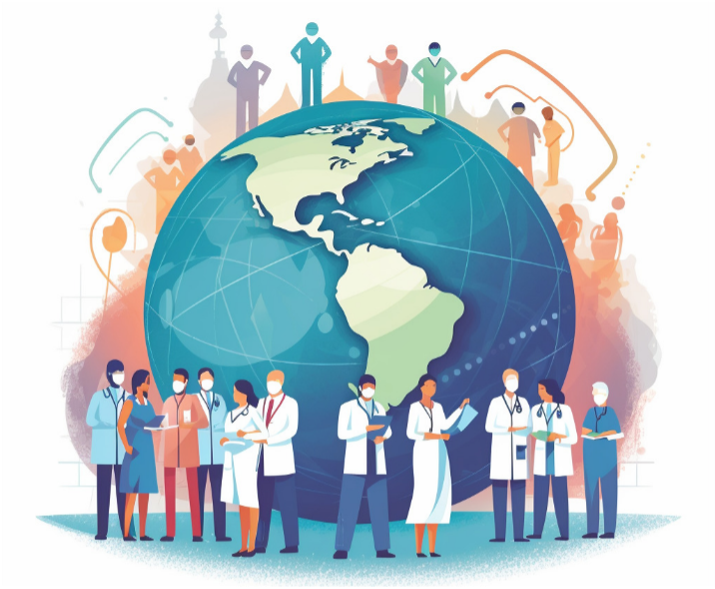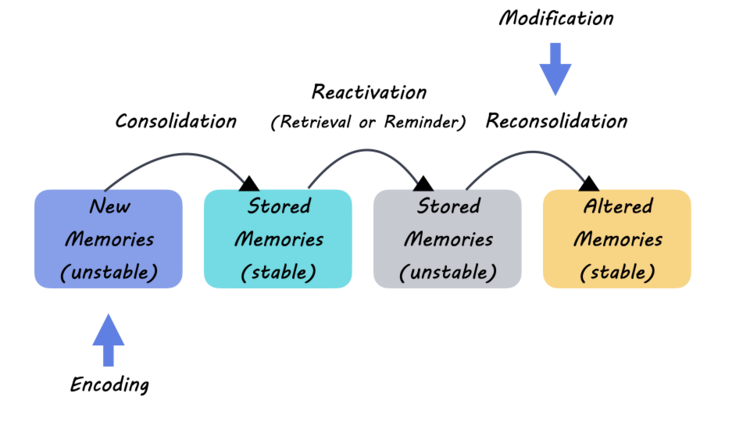Global health is an increasingly urgent topic in today’s interconnected world, particularly as we face unprecedented challenges that threaten the well-being of populations across the globe. As articulated by renowned surgeon and author Atul Gawande, the changes within USAID have significantly impacted our public health infrastructure and the effectiveness of health programs that support millions. With the dismantling of essential resources and personnel, the U.S. risks losing its position as a global health leader, jeopardizing advancements made in combating diseases and improving health outcomes. The implications of these shifts extend beyond immediate health crises; they affect long-term initiatives designed to enhance maternal and child health, as well as combat infectious diseases like HIV and malaria. In this critical time, sustained commitment to global health practices is essential for restoring and advancing our public health systems.
The realm of international health encompasses a broad array of challenges and strategies aimed at improving population health worldwide. With an emphasis on collaborative efforts and innovative programs, experts in global health seek to enhance health outcomes by addressing health disparities and ensuring access to essential services. Influential figures, like Atul Gawande, highlight the significant role played by organizations such as USAID in fostering robust public health infrastructures, which are critical for effective responses to global health crises. By focusing on preventative measures and treatment accessibility, international health efforts strive to elevate the quality of life for vulnerable populations around the globe. As we navigate the complexities of healthcare on a global scale, the importance of strong leadership and supportive health initiatives cannot be overstated.
The Impact of USAID’s Dismantling on Global Health
Atul Gawande’s commentary on the dismantling of USAID underscores a significant void in global health leadership that directly affects millions worldwide. With the defunding of over 85 percent of its programs, Gawande emphasized how these cuts have jeopardized vital health initiatives. Such drastic reductions to public health infrastructure hinder the United States’ ability to respond effectively to emerging health crises and challenges on a global scale. The ripple effects are profound, affecting not only disease surveillance but also the vital services offered to communities across the globe.
The termination of critical health programs, such as those aimed at preventing maternal and child mortality, illustrates the tangible consequences of neglecting public health infrastructure. Millions of women and children, who previously benefited from comprehensive healthcare, are now at risk as resources dwindle. Gawande pointed out that nations previously supported by USAID have lost essential life-saving interventions, highlighting the urgent need for restoration of funding and resources, as the effects are felt far beyond America’s borders, impacting health outcomes across numerous countries.
Gawande’s Vision for Reviving Health Programs
In reflecting on his tenure at USAID, Gawande strongly advocates for revitalizing the agency’s public health programs to restore its former effectiveness. He stated that while the agency cannot return to its past, there is still an opportunity to salvage its mission and infrastructure, suggesting a collaborative approach to health initiatives. This vision includes strengthening partnerships between government, educational institutions, and healthcare providers to reassess and realign the goals of health programs moving forward.
Gawande’s insights remind us of the necessity for technical assistance in health programs, which can bridge the gap between a basic vaccination coverage and achieving widespread immunization. Enhancing the quality of care and increasing accessibility require not just funding but also a commitment to follow-through and innovation. As he mentioned, genuine improvement in health outcomes depends on a united effort to ensure that solutions are not just available, but are effectively implemented and sustained over time.
The Role of Public Health Infrastructure in Crisis Management
Public health infrastructure serves as the backbone of a nation’s ability to respond to health emergencies, as illustrated by the swift action that was possible during outbreaks of diseases like Ebola and Zika. The rapid response capabilities built by agencies like USAID have been crucial in controlling potential pandemics and providing necessary health interventions quickly. However, with the recent cuts to funding and support, these infrastructures are at risk, resulting in slower response times and weakened health responses.
The lessons learned from past health crises underscore the importance of maintaining robust public health systems. Without strong infrastructure, monitoring of health threats becomes challenging, leading to potential widespread outbreaks that could have been contained. Therefore, reviving and funding public health efforts is not only about addressing current deficits but also about preparing for future health crises that may arise, ensuring that a nation is equipped to safeguard its citizens and assist global health efforts.
Challenges Facing Global Health Leadership
The current state of U.S. global health leadership raises significant concerns among health experts and practitioners alike. According to Gawande, the active dismantling of USAID has left a vacuum that creates uncertainty in America’s ability to lead global health initiatives effectively. The loss of strategic leadership could mean that other nations may step up to take on this role, redrawing the landscape of international health collaboration and support. As countries like China and India expand their health programs and global outreach, the U.S. risks being sidelined.
Gawande’s remarks highlight a pivotal moment for public health in America. The absence of strong leadership could diminish the U.S.’s influence in setting global health agendas, which could alter the dynamics of international cooperation. This environment of uncertainty is compounded by funding freezes and political shifts that undermine basic health programs, ultimately impacting the delivery of healthcare services worldwide and placing global health at risk.
The Future of Health Programs Post-USAID Changes
The aftereffects of major changes to USAID are still unfolding, and the future of health programs remains in jeopardy. As Gawande pointed out, innovative health solutions like those aimed at reducing maternal mortality through effective treatments are now at risk due to staff cuts and program cancellations. Such interruptions not only hinder the immediate availability of essential medications but also deter future developments in public health strategies that could save lives.
Amid these challenges, Gawande maintains a hopeful outlook for global health, advocating for a renewed commitment to restoring service levels and enriching the talent pool within health sectors. The vital work being done in healthcare relies heavily on collaboration, training, and maintaining a steady influx of resources. As the community rises to meet these challenges, Gawande’s insights will continue to serve as a guiding beacon for health professionals dedicated to improving health outcomes globally.
The Importance of Community Resilience in Health
Community resilience is a critical aspect of global health that has been highlighted during times of crisis. Gawande emphasizes the significance of community engagement in maintaining health services and fostering change. Health programs that prioritize local community involvement empower individuals to take ownership of their health, leading to sustainable health interventions. By mobilizing local resources and knowledge, communities can effectively address their unique health challenges, turning them into allies in the fight against diseases.
Furthermore, strengthening community resilience can lead to improved health infrastructure that is better equipped to deal with emergencies. A robust community response not only reduces the burden on public health systems but also ensures that health interventions are culturally sensitive and relevant, which increases their acceptance. By investing in community-based health programs, the impact of health leadership can be amplified, creating a solid foundation for ongoing global health efforts.
Innovation as a Catalyst for Health Improvement
Innovation plays a pivotal role in transforming health programs, particularly in response to the challenges highlighted by Gawande. Embracing new technologies and methodologies can significantly bridge the gap in health services, especially in resource-limited settings. By leveraging advances in medical science, data analytics, and telehealth services, health programs can deliver efficient and timely interventions that improve patient outcomes.
Gawande’s assertion on the necessity of technical assistance underlines that innovation must be accompanied by strategic implementation. It is not enough to develop cutting-edge solutions; rather, there should be a structured framework for integrating these innovations within existing health systems. This multi-dimensional approach ensures that advancements are not only introduced into health care but are also sustained and scaled effectively, making them accessible to those who need them most.
Fostering a New Generation of Health Leaders
The challenges facing global health today underline the importance of nurturing future leaders in this field. Gawande encourages current students and healthcare professionals to remain dedicated to advancing science and medicine, emphasizing that their contributions will be vital regardless of the national climate. Inspiring a new generation of health leaders involves equipping them with the knowledge and skills necessary to navigate complex health systems and advocate for global health initiatives effectively.
Moreover, educational institutions play a key role in shaping the perspectives and approaches of emerging health professionals. Programs that focus on public health, global health leadership, and health policy can significantly influence how these individuals approach real-world problems. By fostering critical thinking and problem-solving skills, future health leaders will be better prepared to identify innovative solutions that address health disparities and improve health outcomes globally.
Collaborative Efforts in Public Health Restoration
Gawande’s insights reflect the overarching need for restored public health initiatives through collaborative efforts among various stakeholders. The path to reviving health programs requires a concerted response from governments, NGOs, and the private sector to fund, implement, and evaluate health interventions. Building partnerships that unite diverse expertise fosters an environment ripe for innovation and effective problem-solving strategies within global health.
The role of collaboration becomes even more apparent when addressing health challenges that transcend national borders, such as pandemics. The past lessons learned highlight that global health cannot be the responsibility of a single entity; a collective approach is necessary to tackle the complexities involved in public health. By coming together, stakeholders will have a better chance to pool resources and share knowledge that translates into impactful health initiatives, thereby helping to uphold global health standards and outcomes.
Frequently Asked Questions
What is the impact of USAID on global health programs?
USAID plays a crucial role in global health programs, having pioneered efforts to surveil and respond to deadly diseases like Ebola. Its extensive network has successfully reduced emergency response times for global outbreaks and improved health outcomes for millions through initiatives that combat maternal and childhood mortality, as well as diseases such as HIV and malaria.
How has Atul Gawande contributed to global health leadership?
Atul Gawande, as a former head of USAID’s Bureau for Global Health, exemplifies global health leadership through his advocacy for restoring essential health programs and infrastructure. He emphasizes the importance of innovative health solutions and technical assistance to enhance vaccination rates and improve overall health outcomes worldwide.
What are the challenges facing public health infrastructure in the USA?
Public health infrastructure in the USA has faced significant challenges, particularly following administrative changes that dismantled critical agencies like USAID. This has led to funding freezes and staff terminations, jeopardizing health programs that previously supported global health initiatives and responses to health crises.
Why is the restoration of USAID vital for global health?
Restoring USAID is vital for global health as it underpins numerous health programs that enhance disease surveillance, maternal and child health, and responses to epidemics. Gawande highlights that without USAID’s full capacity, the U.S. risks losing its role as a global health leader and the positive impacts achieved over the years.
What role does technical assistance play in improving global health outcomes?
Technical assistance is essential in global health as it provides the necessary support to increase vaccination rates and implement effective health programs. Gawande notes that this component is key to moving from 60% to 90% vaccination, illustrating the need for consistent follow-through in health initiatives.
How have recent changes affected health and science programs in the USA?
Recent changes, such as staff layoffs and program cuts at agencies like USAID, have severely impacted health and science programs in the USA. This has resulted in halted funding for critical research and initiatives, threatening advancements in health that have benefited millions globally.
What encouragement does Atul Gawande offer regarding global health careers?
Atul Gawande encourages students and professionals in health fields to remain committed to science and medicine, emphasizing that their expertise will be needed in global health regardless of the current challenges. His message underscores the ongoing importance of global health efforts and the potential for future leadership.
What are the long-term prospects for global health according to Gawande?
Atul Gawande remains hopeful about the long-term prospects for global health, despite current challenges. He suggests that if the U.S. steps back from its leadership role, other countries and local leaders will likely fill the gap, maintaining the necessity for continued focus and investment in global health initiatives.
| Key Point | Details |
|---|---|
| Devastating Impact of USAID Cuts | Cuts to USAID programs have severely affected millions globally and reduced the U.S.’s leadership in global health. |
| Gawande’s Role at USAID | Atul Gawande served as a leader at USAID, focusing on global health before his resignation at the end of Biden’s term. |
| The Importance of Health Infrastructure | Gawande emphasizes the necessity of restoring health and science infrastructure in the U.S. to combat future health crises. |
| Research Funding Freeze | Recent funding issues threaten important research initiatives at institutions like Harvard and Brigham and Women’s Hospital. |
| Global Health Achievements | Before the cuts, USAID achieved significant progress in averting maternal and childhood deaths and managing critical diseases like HIV and malaria. |
| Future of Global Health Leadership | Gawande expresses uncertainty about the U.S.’s future role in global health leadership, mentioning potential emerging leaders. |
| The Call to Action | Despite challenges, Gawande encourages the new generation to continue striving for improvements in global health. |
Summary
Global health has been significantly impacted by recent policy changes, particularly the dismantling of critical programs within the U.S. Agency for International Development (USAID). As highlighted by Atul Gawande, the challenges in global health infrastructure are profound, but the commitment to science and health must remain unwavering. The discussion emphasizes not only the past achievements in global health but also the urgent need for the U.S. to reconsider its leading role to foster international health cooperation and innovation. Moving forward, it is imperative that both governmental and non-governmental entities focus on reviving and enhancing health programs that save lives and support vulnerable populations worldwide.









